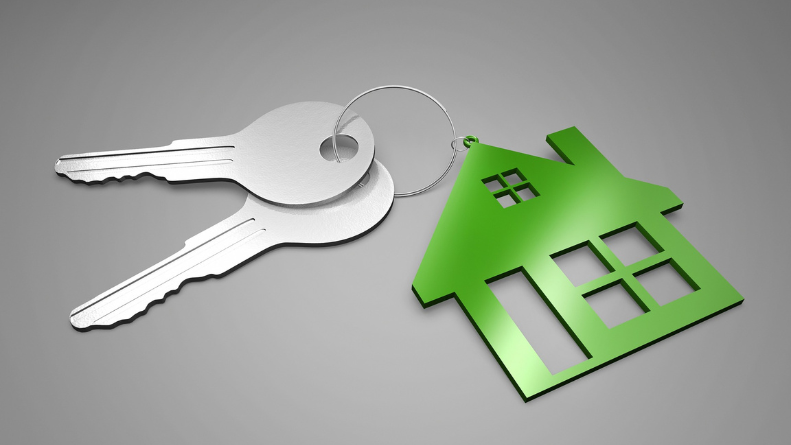Are You Prepared to be a Landlord?
It’s not necessary to become a landlord to rent property out, something that is commonly misunderstood (more on this later). However, getting to grips with what is prepared in becoming a landlord is a prerequisite for buy-to-let investment success if you decide later that this is the right path for you.
There’s no hiding the fact that being a landlord entails responsibilities, hard work, and plenty of your time. Maintenance and repair work to keep the property in good letting condition, safety issues, as well as finding tenants, are just part of the responsibilities of being a landlord.
The skills a landlord needs are broad in scope and include anything from a clogged toilet to arranging various safety inspections and being aware of the legislation that governs letting private property.
Let’s start by looking at a landlord’s safety responsibilities before moving onto others that you need to be aware of.
Landlord’s Safety Responsibilities
- Fire safety
- Gas safety
- Electrical safety
Fire Safety
To ensure that a property is meeting government fire safety standards, a landlord must make sure of the following:
- Install and maintain smoke alarms on each story of the property.
- Install and maintain a carbon monoxide alarm in any room that has a fuel-burning heating appliance like a wood-burning stove.
- Make sure that the tenant has fire escape routes.
- Ensure that any furniture provided to the tenants meets fire safety standards.
- For homes that have multiple occupations (HMO), you must install fire alarms or extinguishers.
Gas safety
Landlords must ensure the following:
- Make sure that any gas appliances that are provided are done so in a safe way and that they are kept up to date by a qualified Gas Safe registered engineer.
- Arrange for an annual gas safety check to be done by an engineer on every gas appliance and flue.
- Before the tenant moves in, give him or her a copy of the gas safety check record. Do this within 28 days of the last check.
Electrical safety
To be compliant with electrical safety, a landlord must:
- Make sure that the electrical system is safe (e.g., light fittings, sockets, etc).
- Make sure that any electric appliance is also safe (e.g., ovens, kettles, etc).
Landlord’s repair responsibilities
Landlords will need to carry out repairs on their property as and when they are needed, and this includes being responsible for any damage you cause while carrying out repairs, along with the following items and systems:
- Hot water and heating.
- pipes and drains.
- Baths, sinks, and basins.
- All the electrical wiring.
- All gas appliances.
- Flues and ventilation.
- The property’s structure and exterior

For properties like flats with common areas such as stairwells or gardens, these repair works will be outlined in the tenancy agreement. You are able to include clauses in this agreement whereby you agree to allow tenants to undertake their own repairs as they arise but be aware that a tenant cannot be compelled to carry out any repair work that falls within the responsibility of the landlord.
In certain circumstances, the tenant will incur the cost of repair work. For example, if through their negligence they allowed water to overflow from the bath and caused water damage to another apartment, the responsibility for paying for the damage will lie with the tenant.
Rent increases and arrears
The reason why you decided to become a landlord is to make a profit from renting out your property to tenants. Private rental prices paid by tenants in the UK rose by 2.0% in the 12 months to January 2022, up from 1.8% in the 12 months to December 2021.
However, you need to be aware that rent charging is subject to legislation to make sure that landlords cannot charge whatever they decide on. The first thing to note is that rental increases comprise part of the tenancy agreement, and this will include things like how and when the rent will be reviewed. As a general rule, rent can only be increased upon agreement with the tenant, and the increase must be “fair” and “realistic.”
- Periodic tenancy. A periodic tenancy is a rolling agreement whereby it rolls on week by week or month by month. For tenants on a periodic tenancy, landlords are only able to increase the rental charges once a year.
- Fixed-term tenancy. A fixed-term tenancy is one where the term runs for an agreed period. With these tenancy agreements, landlords can only increase the rent with the agreement of the tenant. Where there is no agreement between landlord and tenant, the landlord can only increase the rent when the fixed term has ended.
For landlords to increase the rent they are charging, they must first give tenants at least one month’s notice if they are paying for their rent on a weekly or monthly basis. For tenants that hold a yearly tenancy, you will have to give at least 6 months’ notice.
Rent arrears
When tenants are behind in paying their rent, it can be a real headache for landlords. When this happens, one possibility is for landlords to evict the tenant from their property. If you decide on this course of action, you will have to give the tenant at least 6 months’ notice of eviction. However, if the tenant owes you 6 months’ rent, then you will not have to give this amount of time.
Tenant’s Rights and Responsibilities
Tenants living in your property have rights and responsibilities towards you and your property.
Tenants’ rights
- To live in your property that is in good condition and safe.
- They will have their deposit returned to them when the tenancy term has ended.
- They have the right to question and challenge what they consider to be excessive charges.
- Have name and contact details of the landlord.
- Live in the property peacefully and without disturbance.
- Protection from “unfair” evictions or rental charges.
- Have a copy of the Energy Performance Certificate (EPC).
Tenant’s responsibilities
Along with the rights, tenants also have responsibilities to the landlord and property. For example, after been given 24 hours’ notice by the landlord, tenants must allow access to the property. Other responsibilities include the following:
- Treat the property well and take good care of it.
- Pay the agreed rent on time.
- Pay any charges agreed on, like the utility bills.
- They must cover the cost of damage to the property caused by themselves or their guests.
While the above may seem a little daunting at first to a budding landlord, there’s no need to get concerned about it. Once you have mastered the basics, you will find that it will become much easier.
A property management company?
Back to what was mentioned at the start, not all buy-to-let property investors are landlords. For various reasons, some investors decide from the start that they want to take a more hands-off approach to their investments and hire a property management company to manage their investment property on their behalf.
Property management companies will take over running your properties, which includes finding and vetting tenants, following up on late payments, and dealing with tenant concerns.
For investors that still want to devote their time and energy to their careers, or for other reasons, hiring a property management company may be a good option to consider. The fee for this service is usually about 10% of the rental income.
In summary, being a landlord comes with various responsibilities that you need to know about before diving right into the buy-to-rent market. But once you have done your research and familiarised yourself with what’s involved, you will find that investing in property can be a lucrative and personally rewarding experience.
ARE YOU READY TO START INVESTING?
Subscribe to our mailing list now for exclusive deals, investment guides and the latest information from the property market.






